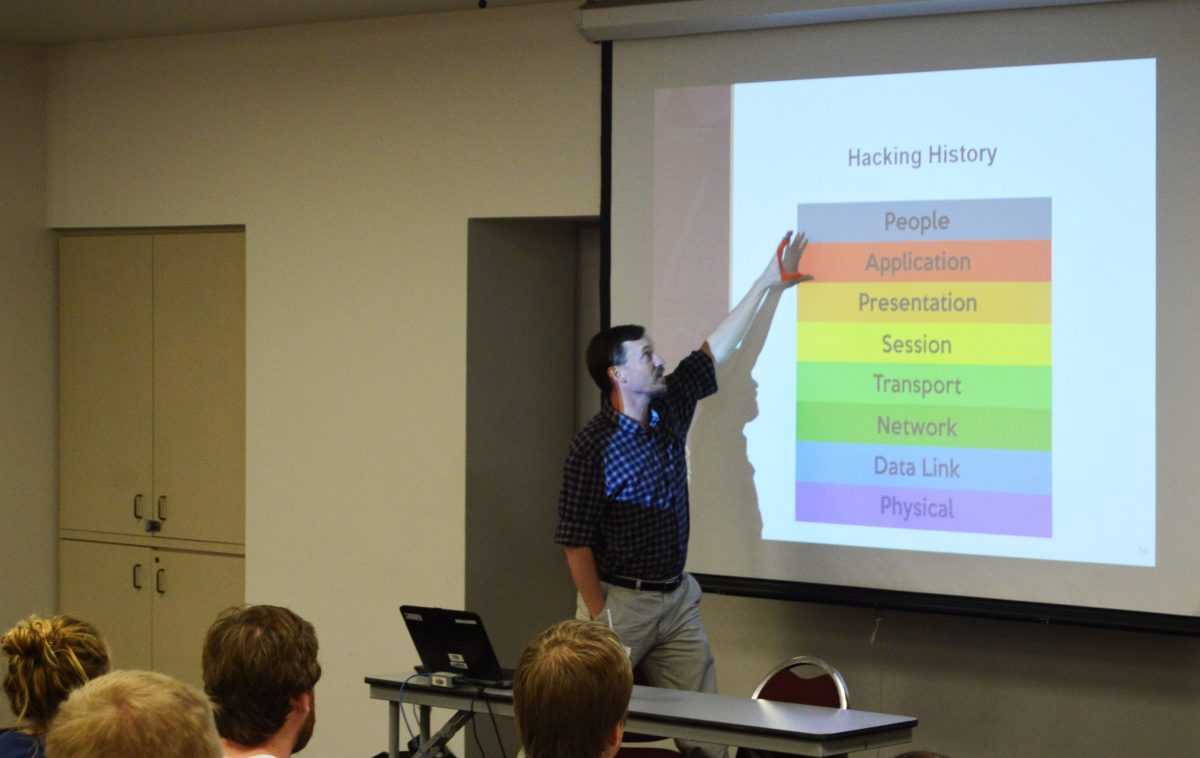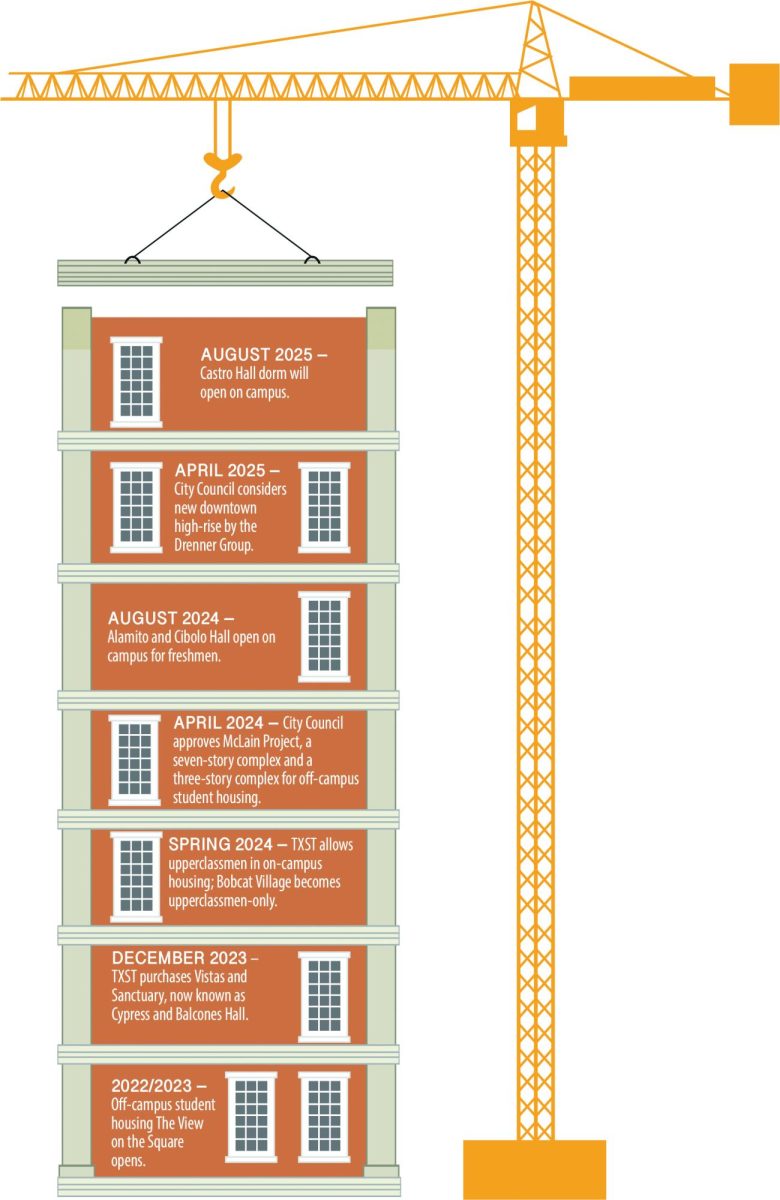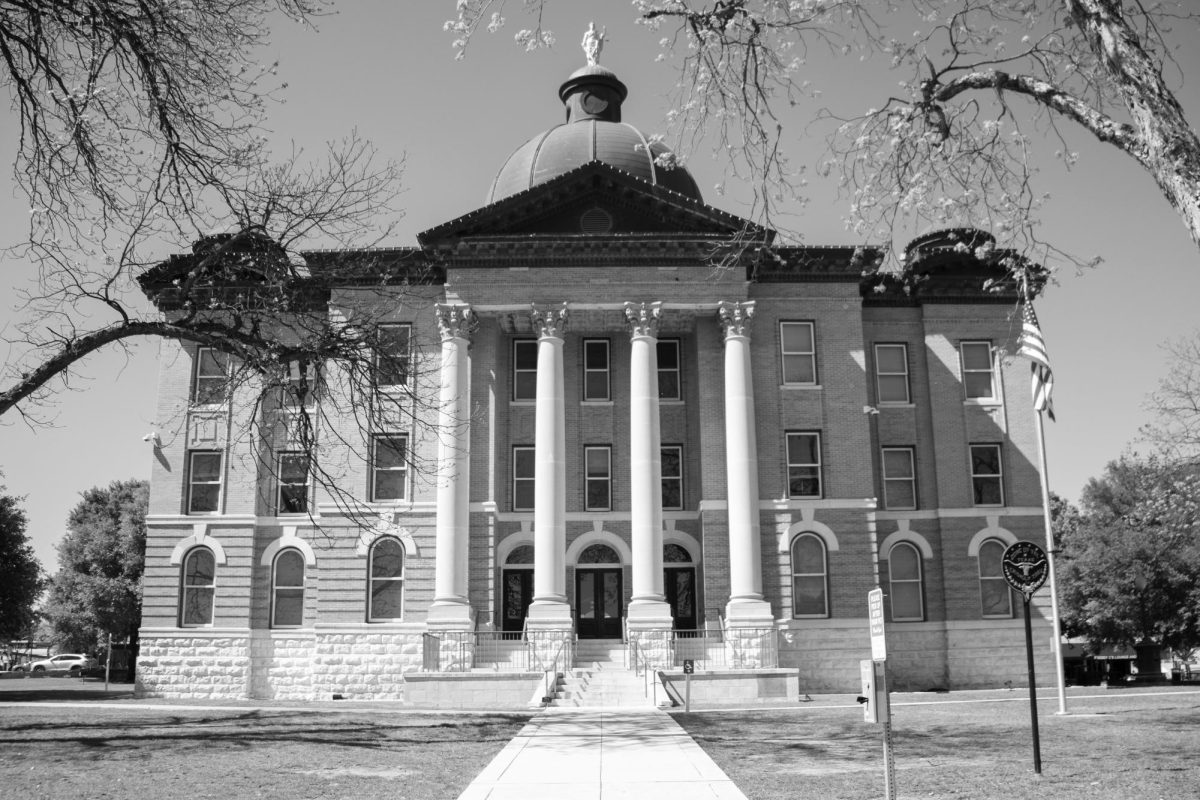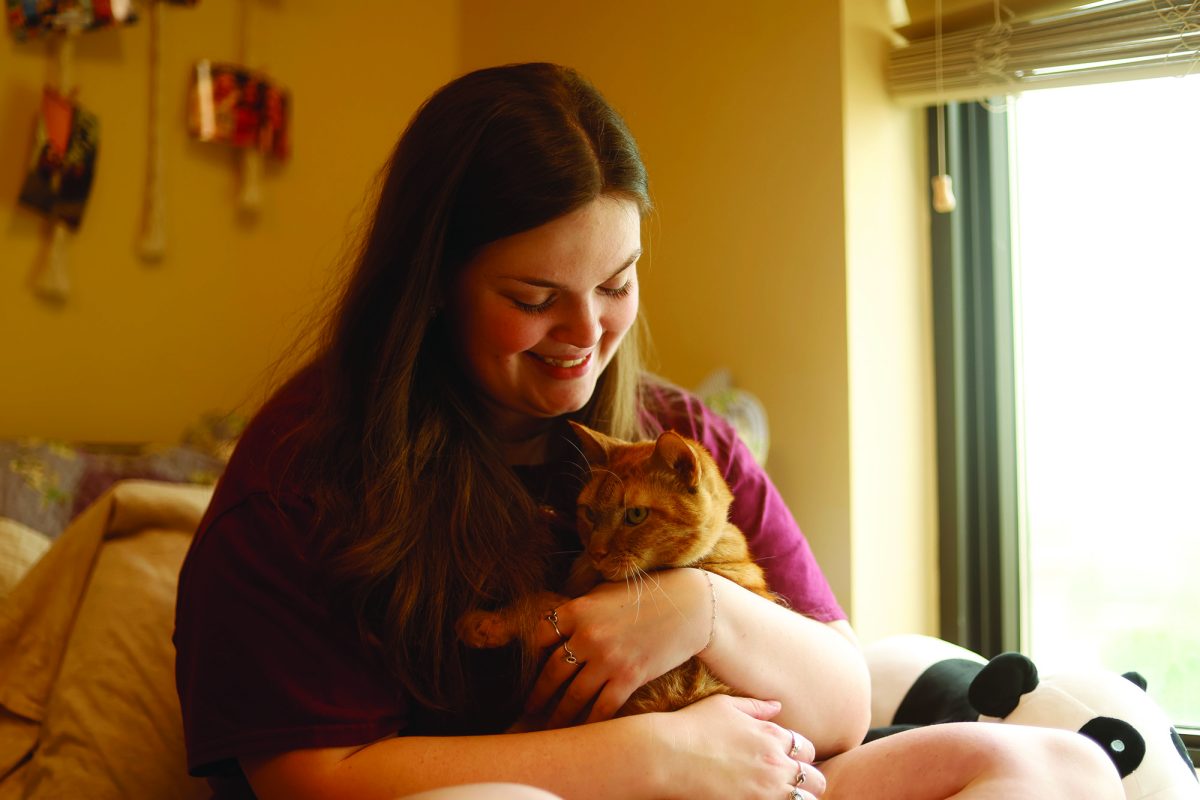Texas State’s Information Security Office recognized National Cyber Security Awareness Month with guest speaker, Tim McGuffin. National Cyber Security Awareness Month is observed every October and was created as a collaborative effort between government and industry to ensure every American has the resources they need to stay safer and more secure online.
Since the inception of NCSAM in 2004, under leadership from the U.S. Department of Homeland Security and the National Cyber Security Alliance, NCSAM has grown exponentially reaching consumers, small and medium-sized businesses, corporations, educational institutions and young people across the nation.
McGuffin, who has been involved in information security since 2002, delivered his presentation with a real-world perspective on how someone gets hacked and provided specific measures on how to prevent individuals from being the target of such an attack. The presentation took place Oct. 9, in the LBJ Student Center marking it the 14th year of NCSAM.
McGuffin is a longtime staff member and now organizer at the DEF CON hacker conference and was previously Information Security Officer for Sam Houston State University. As a Senior Red Team Manager, McGuffin models attacker tactics, techniques, and procedures and studies adversary operations to help companies increase their security defense and detection capabilities.
McGuffin is a strong proponent of cybersecurity and online safety, he believes everyone can take steps to protect themselves from malicious hackers. According to McGuffin, the steps ultimately depend on each individual’s risk level.
“Use a strong password, use unique passwords per site, use a password manager and consider federated authentication such as logging into a site using Facebook or Google,” McGuffin said.
After the first online credit card transaction by Pizza Hut in 1994, security concerns began to arise due to the lack of protection towards the credit card information that was being exchanged online.
McGuffin described the Internet in its infancy and this early form of e-commerce as both risky and insecure.
“The Internet was a castle built on a bed of sand,” McGuffin said. “The underline protocols were still insecure and we were trying to build security on top of it.”
Fast-forward to 2017, global leaders continue to identify methods to better protect the private sector, government entities and consumers from fraudulent online activities. Recent legislation and support from the White House shows that cybersecurity has enormous implications for government security, economic prosperity and public safety. States are addressing cybersecurity through various initiatives, such as providing more funding for improved security measures, requiring government agencies or businesses to implement specific types of security practices, increasing penalties for computer crimes and addressing threats to critical infrastructure.
Texas State’s Information Security Office is hosting a special screening of “Zero Days”, a documentary directed by Alex Gibney about the Stuxnet computer virus that the United States and Israel unleashed to destroy a key part of an Iranian nuclear facility. The event will be held from 12-2 p.m. on Oct. 24-25 in the LBJSC room 3-14.1 and is open to all guests that want to participate.
Categories:
Cyber Security Expert discussed hacking prevention as part of National Cyber Security Awareness Month
October 21, 2017
Tim McGuffin explains the different ways people can hack and the history of hacking and how it has evolved.
Photo by Ricardo Martin | Staff Photographer
0
Donate to The University Star
Your donation will support the student journalists of Texas State University. Your contribution will allow us to purchase equipment and cover our annual website hosting costs.
More to Discover









